The sunlit face of the earth would appear to shine by the light diffused back into space from the land and water-covered areas.
C. V. RAMANThis was the reason why I decided, as far as possible, not to accept money from the government.
More C. V. Raman Quotes
-





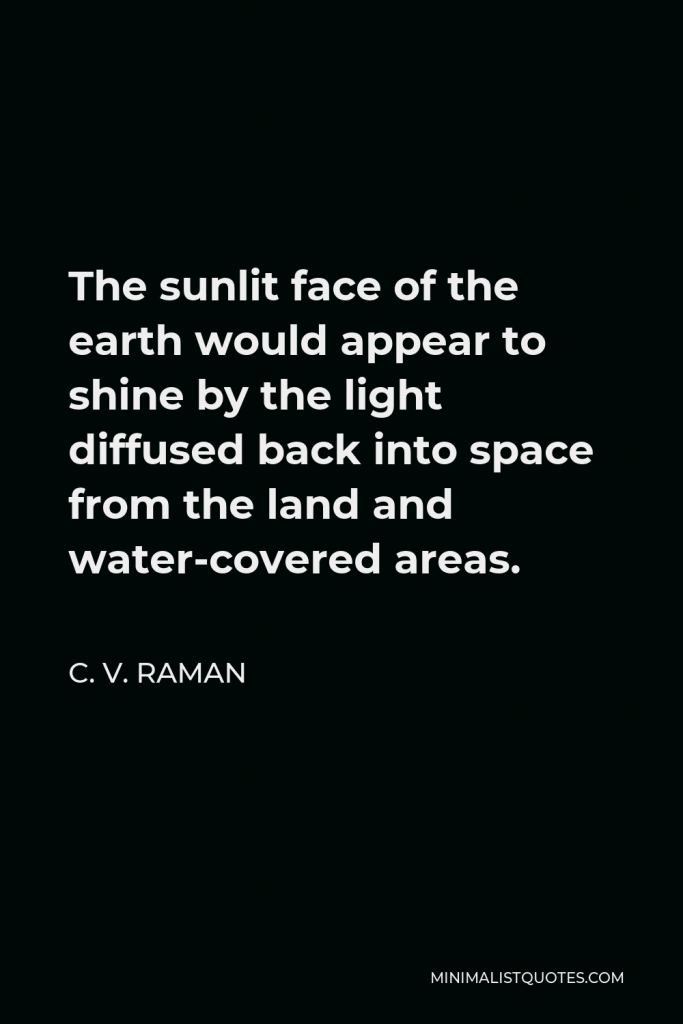

-





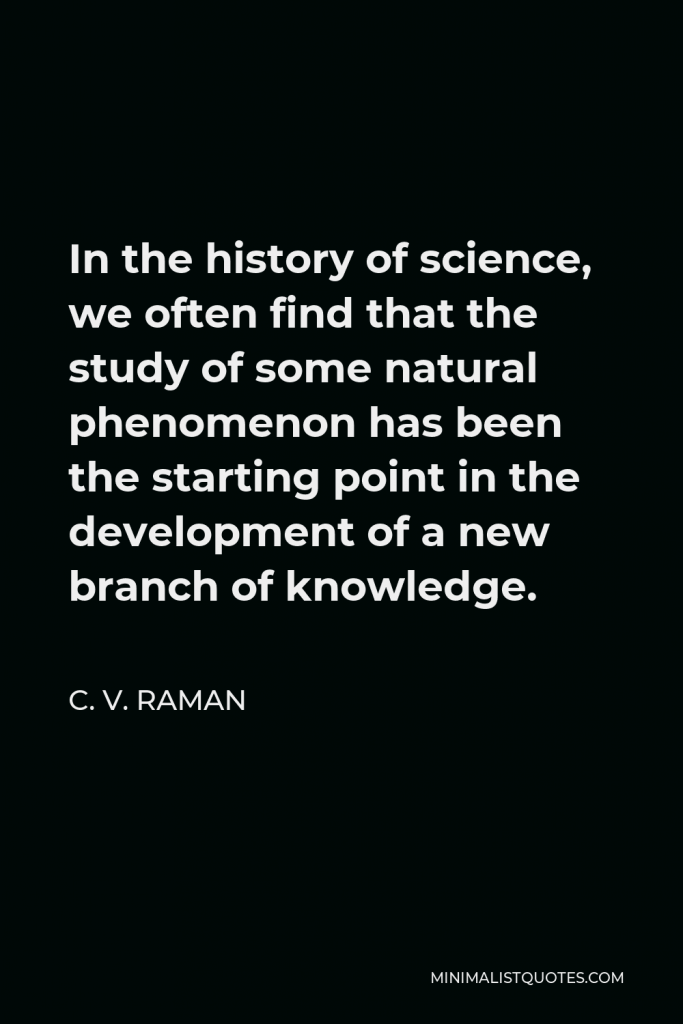

In the history of science, we often find that the study of some natural phenomenon has been the starting point in the development of a new branch of knowledge.
C. V. RAMAN -





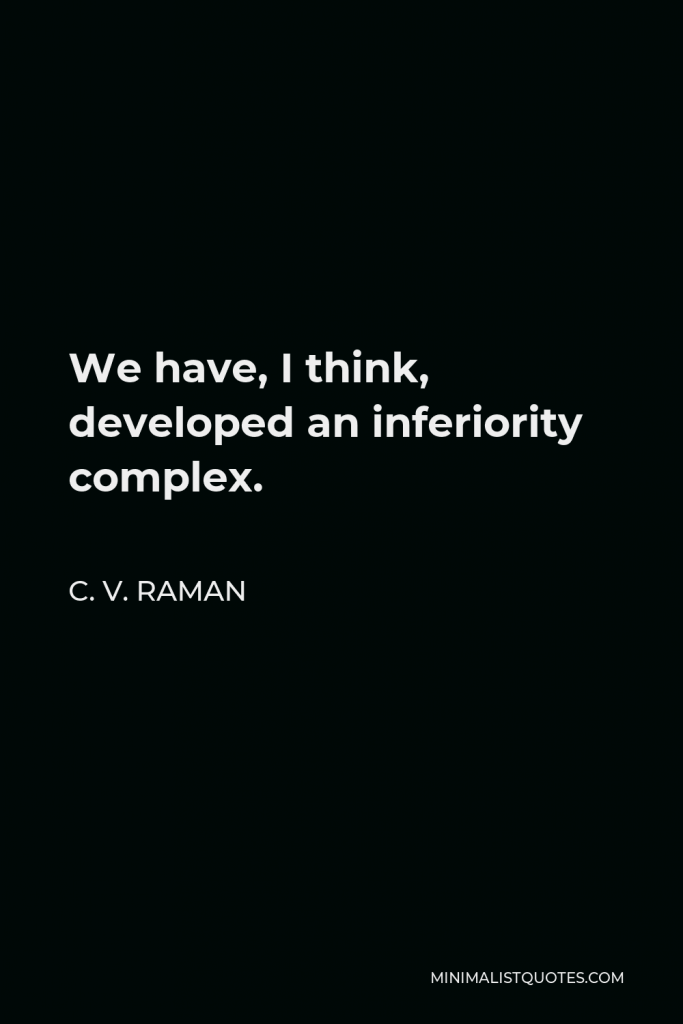

We have, I think, developed an inferiority complex.
C. V. RAMAN -





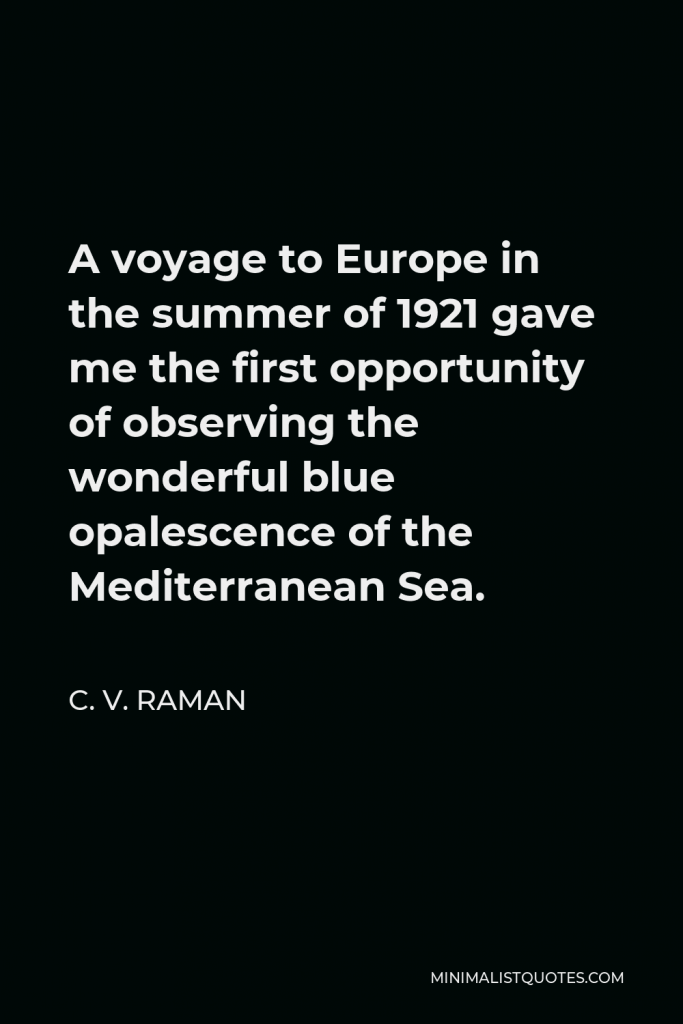

A voyage to Europe in the summer of 1921 gave me the first opportunity of observing the wonderful blue opalescence of the Mediterranean Sea.
C. V. RAMAN -





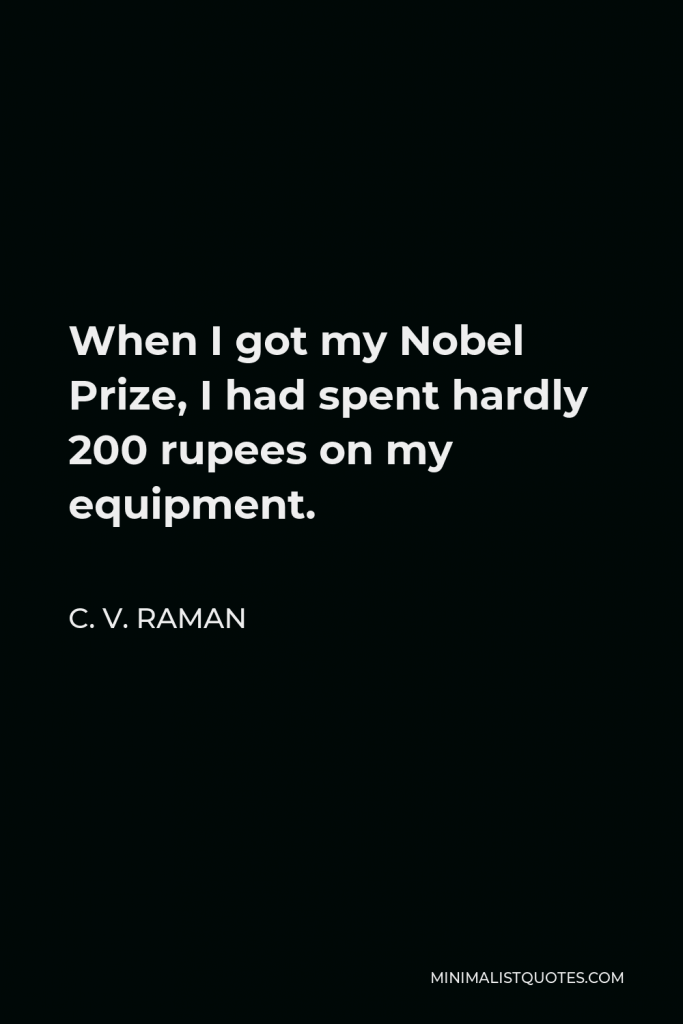

When I got my Nobel Prize, I had spent hardly 200 rupees on my equipment.
C. V. RAMAN -





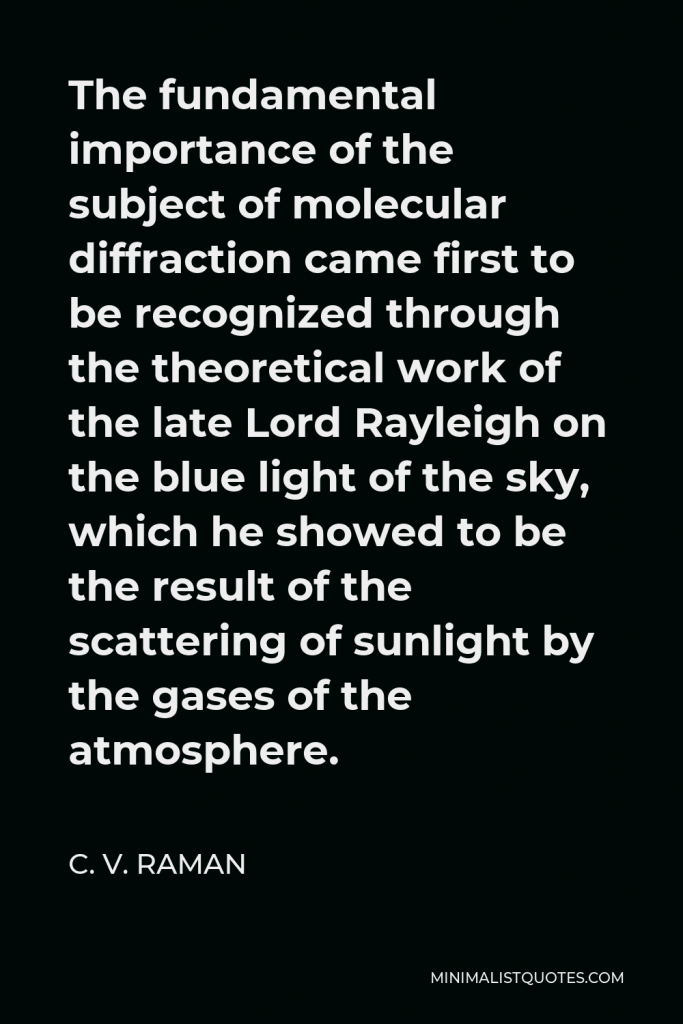

The fundamental importance of the subject of molecular diffraction came first to be recognized through the theoretical work of the late Lord Rayleigh on the blue light of the sky, which he showed to be the result of the scattering of sunlight by the gases of the atmosphere.
C. V. RAMAN -







All the instruments of percussion known to European science are essentially nonmusical and can only be tolerated in open air music or in large orchestras where a little noise more or less makes no difference.
C. V. RAMAN -





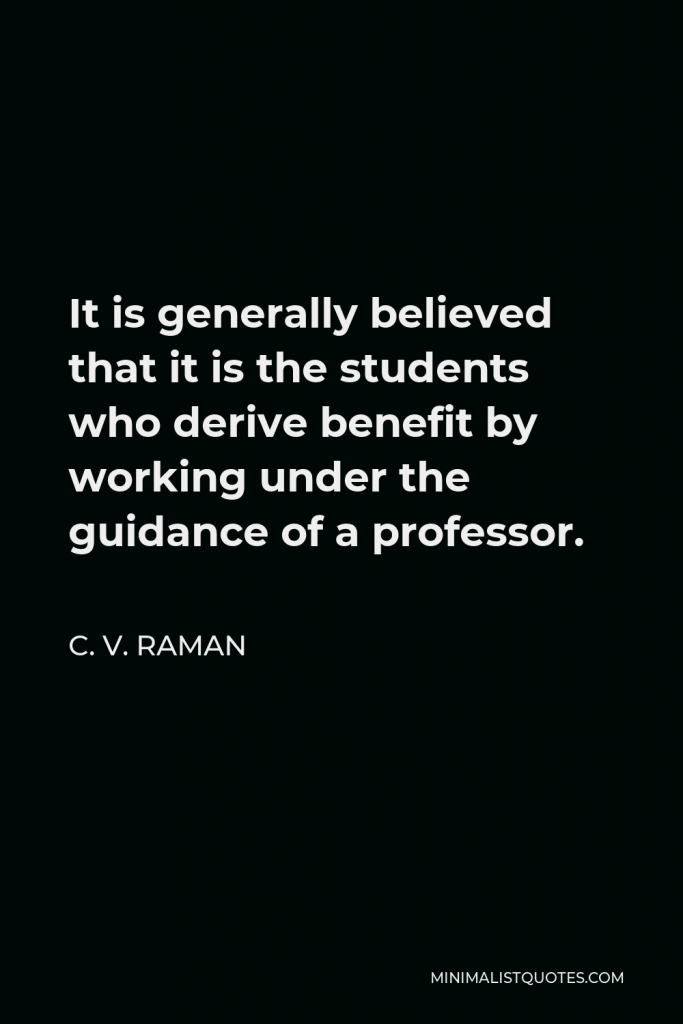

It is generally believed that it is the students who derive benefit by working under the guidance of a professor.
C. V. RAMAN -





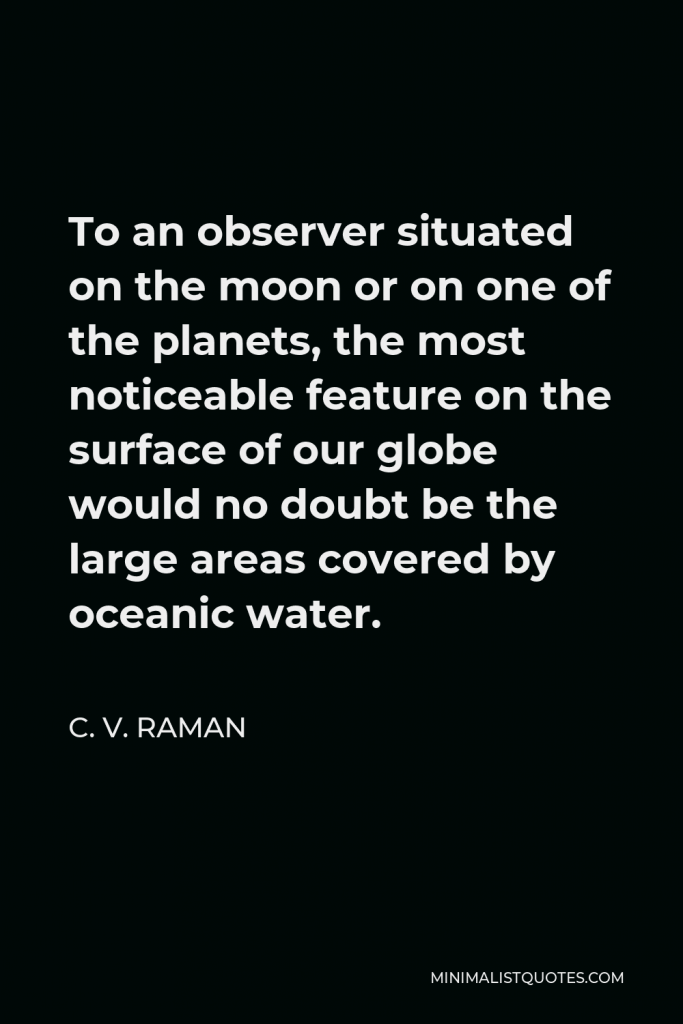

To an observer situated on the moon or on one of the planets, the most noticeable feature on the surface of our globe would no doubt be the large areas covered by oceanic water.
C. V. RAMAN -







In reality, the professor benefits equally by his association with gifted students working under him.
C. V. RAMAN -





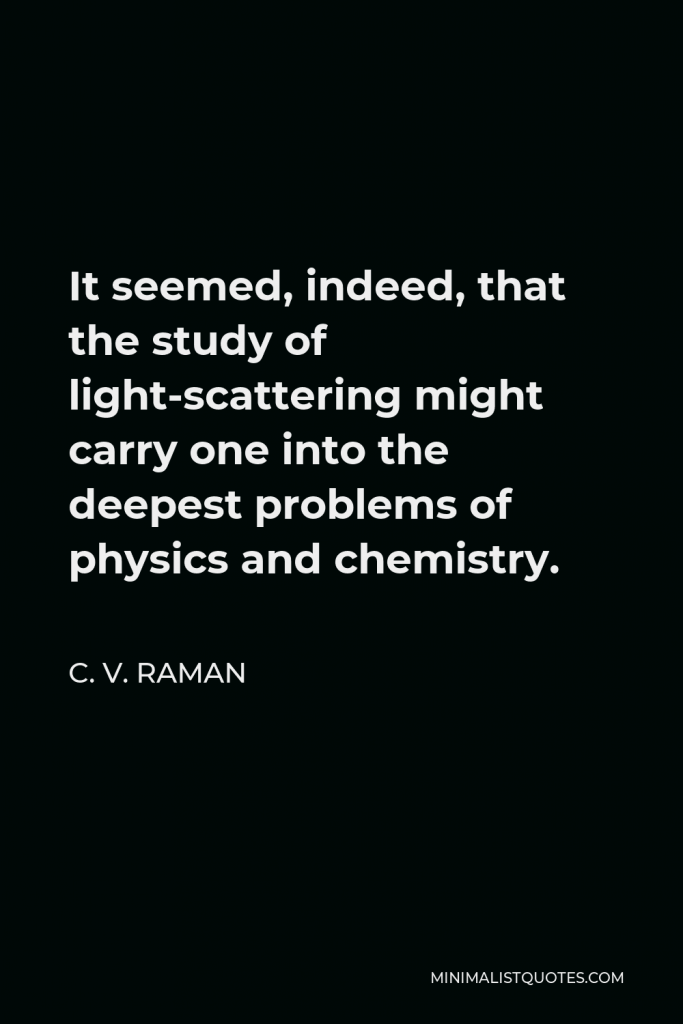

It seemed, indeed, that the study of light-scattering might carry one into the deepest problems of physics and chemistry.
C. V. RAMAN -





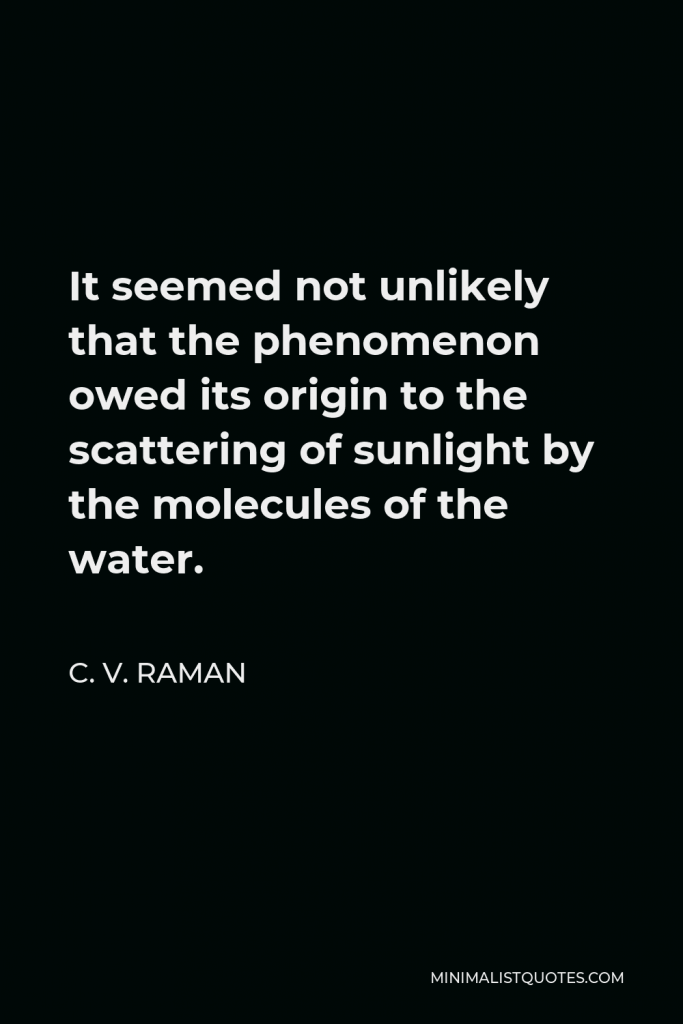

It seemed not unlikely that the phenomenon owed its origin to the scattering of sunlight by the molecules of the water.
C. V. RAMAN -







In the first English class I attended, Prof. E. H. Elliot, addressing me, asked if I really belonged to the Junior B. A. class, and I had to answer him in the affirmative. He then proceeded to inquire how old I was.
C. V. RAMAN -





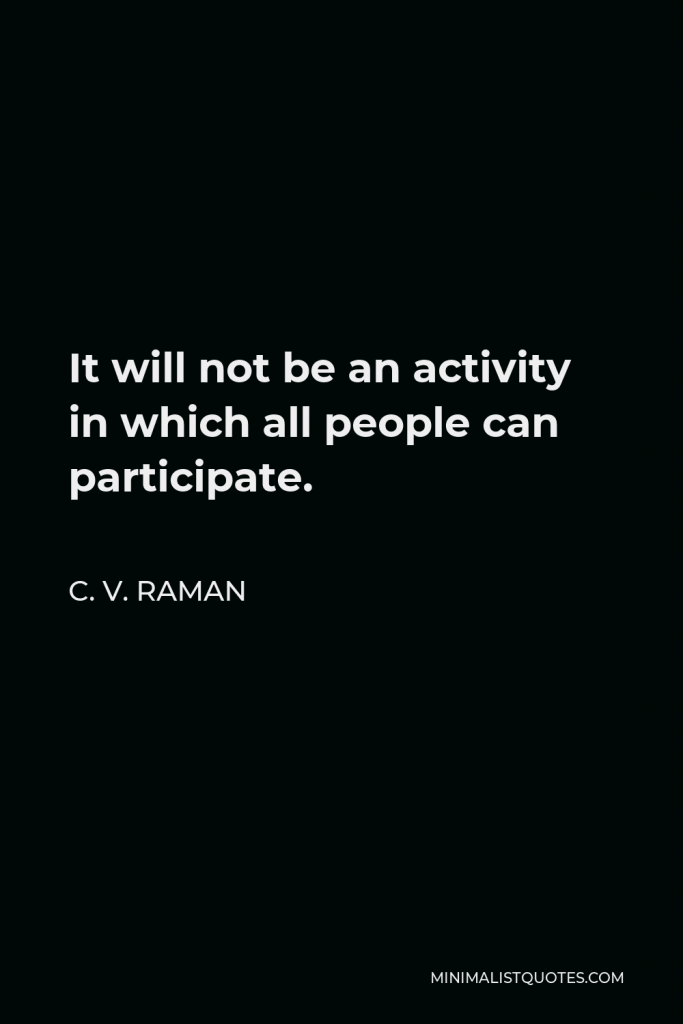

It will not be an activity in which all people can participate.
C. V. RAMAN -





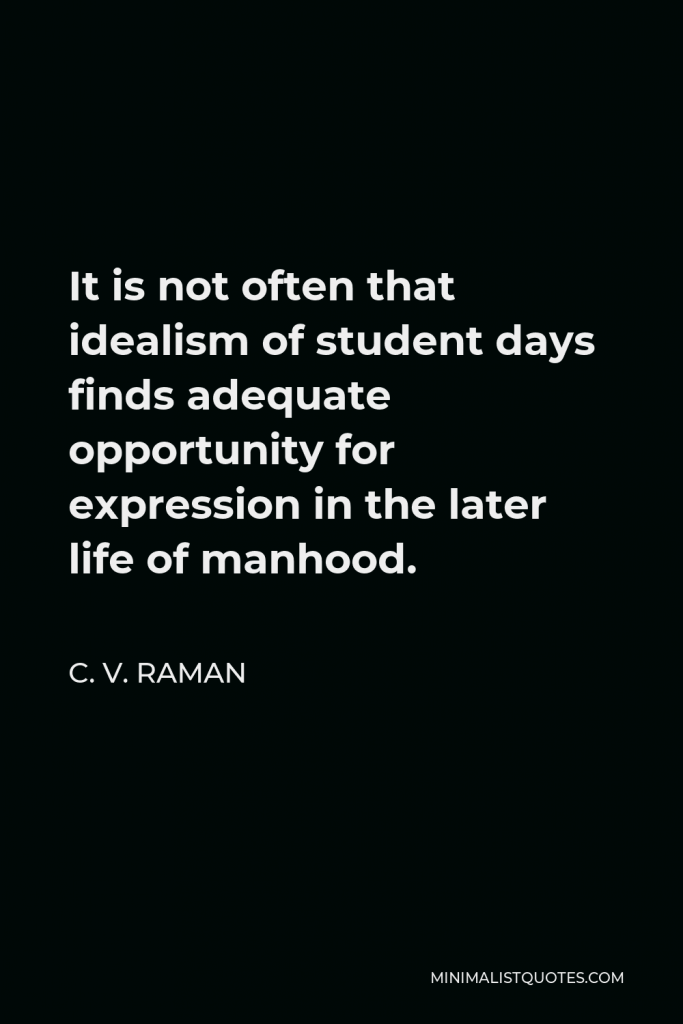

It is not often that idealism of student days finds adequate opportunity for expression in the later life of manhood.
C. V. RAMAN -





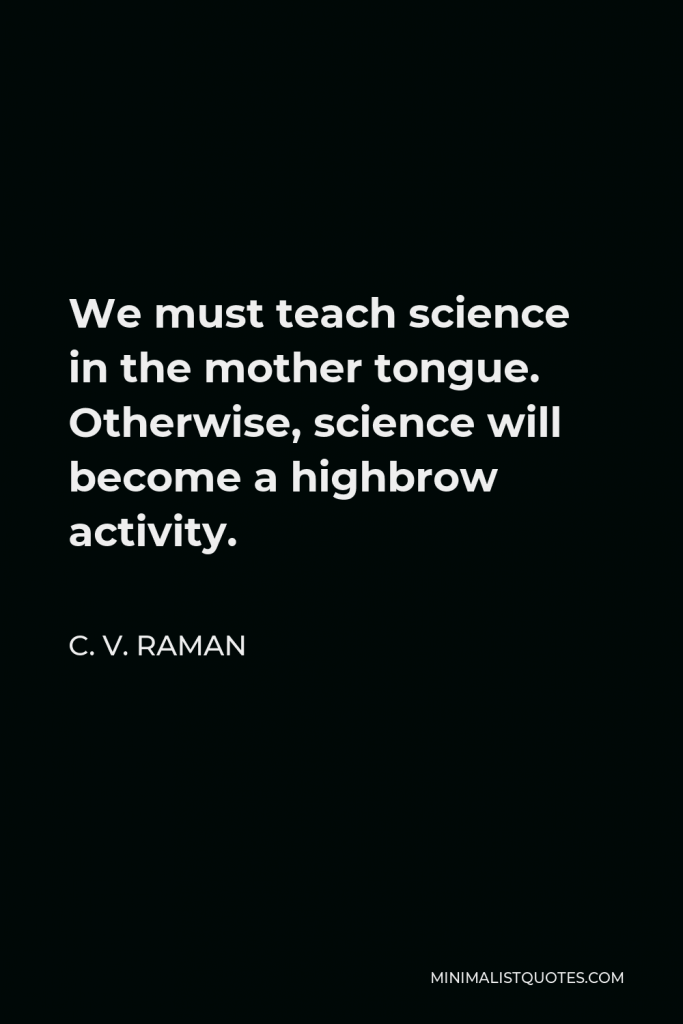

We must teach science in the mother tongue. Otherwise, science will become a highbrow activity.
C. V. RAMAN







